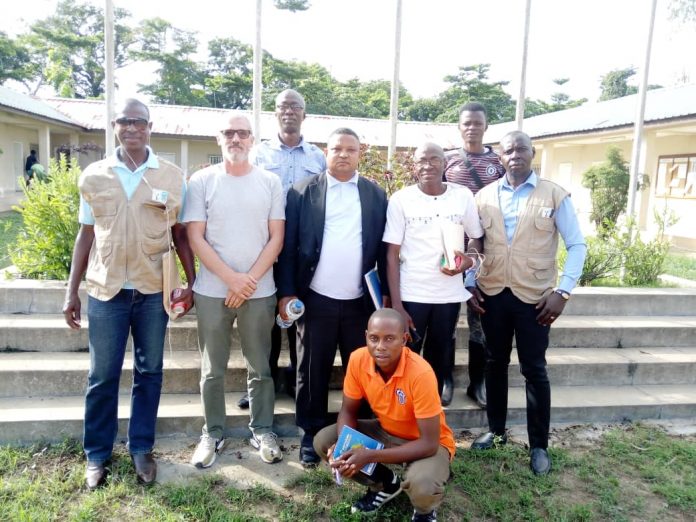The Human Rights Commission of Sierra Leone (HRCSL) on Thursday 27th June 2019 engaged the management of Gold Tree Company in Daru, Kailahun District to ascertain the level of compliance with Business and Human Rights (BHR) standards.
Part of the work of the Human Rights Commission of Sierra Leone is to address business and human rights issues in the country. A guideline document titled: “Guidelines for Monitoring Business and Human Rights in Sierra Leone” was developed in 2013 in partnership with the Irish Human Rights Commission and the Danish Institute for Human Rights to provide a clear and consistent roadmap for monitoring the operations of business enterprises in Sierra Leone.
The ‘Guidelines’ lay emphasis on the ‘Protect, Respect and Remedy Framework’ of the UN Guiding Principles on Business and Human Rights, other international and regional human rights standards to which Sierra Leone is a party, as well as domestic policies and laws relevant to the operations of businesses in the country.
As a business entity, the operations of Gold Tree Company continues to have extensive impacts on the enjoyment of human rights of members of host communities and its workers – directly impacting on such rights like protection of the environment, rights of workers and other employment practices, rights to property relating to access and use of land (affecting food security), right to health and access to clean and safe drinking water (relating to application of chemicals and management/disposal of wastes), freedom from discrimination, rights of women and children.
The impacts can however be negative or positive.
The Oversight Commissioner for the Directorate of Monitoring and Research at the Human Rights Commission of Sierra Leone, Dr. Gassan Abess explained that the endorsement of the Guiding Principles on BHR by the UN Human Rights Council on 16th June 2011, provided the platform for implementing the UN “Protect, Respect and Remedy Framework, which – for the first time – serves as a global standard for preventing and addressing the risk of adverse impacts on human rights linked to business activities.
Commissioner Abess also stated that in Sierra Leone, business activities have affected human rights through labour exploitation, discriminatory and other forms of employment practices, corruption, environmental degradation, unlawful acquisition of land, forced eviction of communities from their lands and related negative consequences.
He pointed out that protests and demonstrations by communities and workers have led to conflicts, damage to property, injuries, and sometimes death.
All of these, he went on, are encapsulated to abuse or violations of various forms of human rights. “These trends led to increase in the number of complaints to the HRCSL, relevant government institutions and other rights based organizations”. Dr. Abess mentioned.
The Deputy Director and Head of the Business and Human Rights Unit at the HRCSL, Abdulai Yolla Bangura explained in an interview that Gold Tree is one of the agri-business multinational companies operating in Sierra Leone with an oil palm plantation and a processing plant in Daru.
He said the monitoring will provide the Commission with the opportunity to engage with the company management identify gaps and proffer recommendations for remedial action.
The Acting Deputy Director and Head of the Eastern Region office of the Human Rights Commission of Sierra Leone, Sylvester Kallon was also part of the monitoring team.




